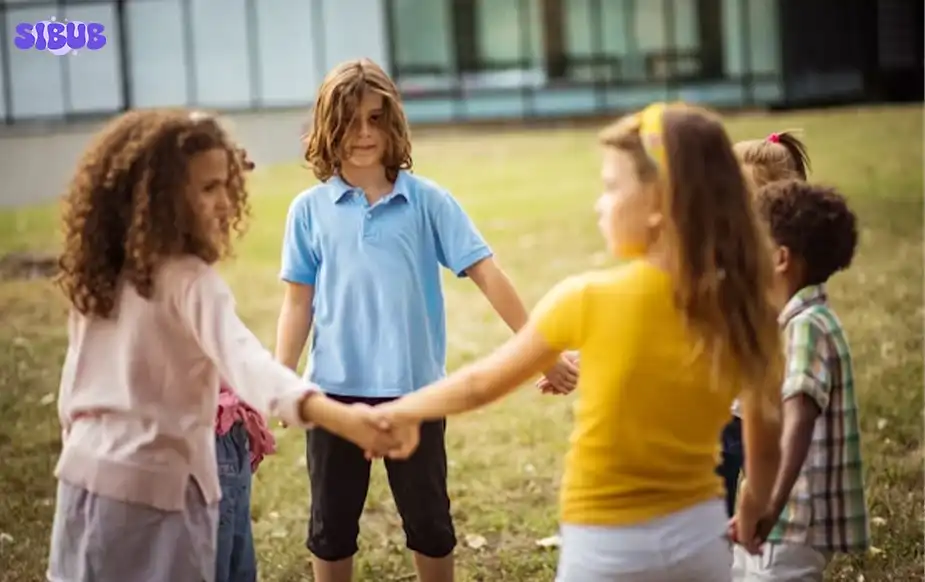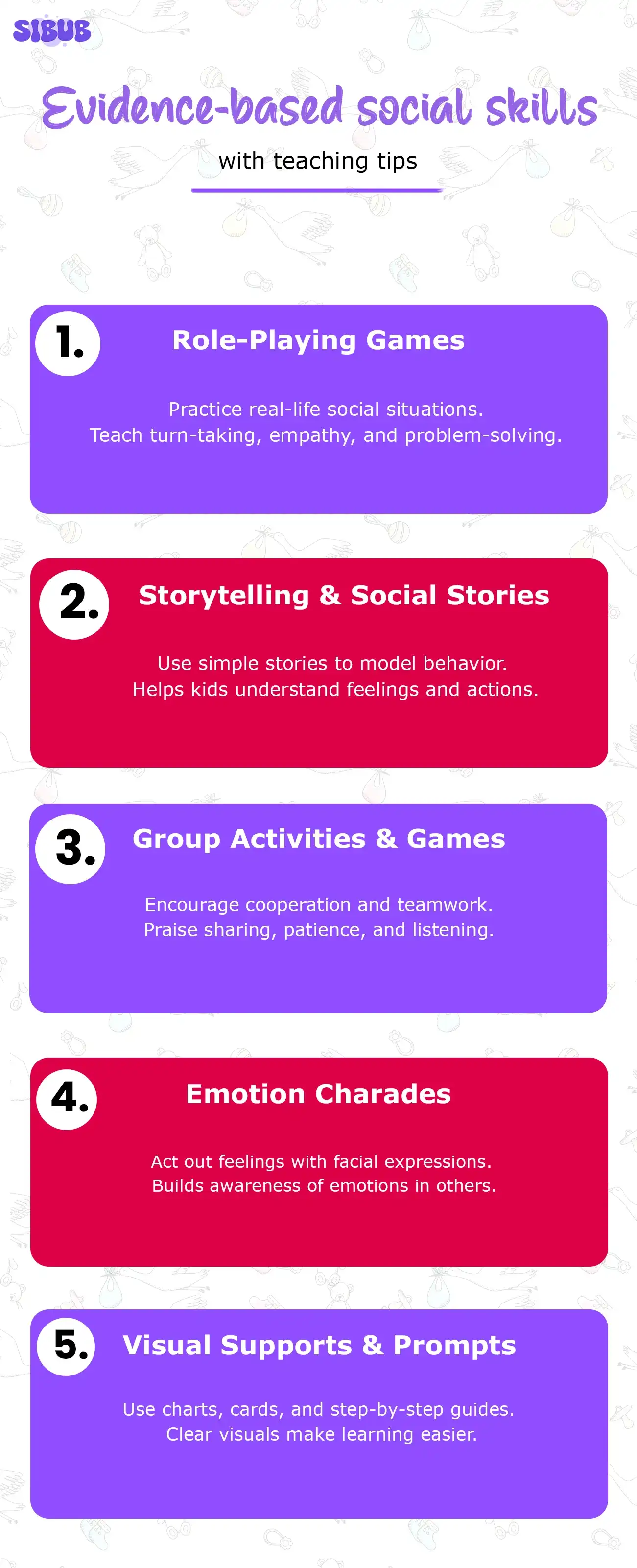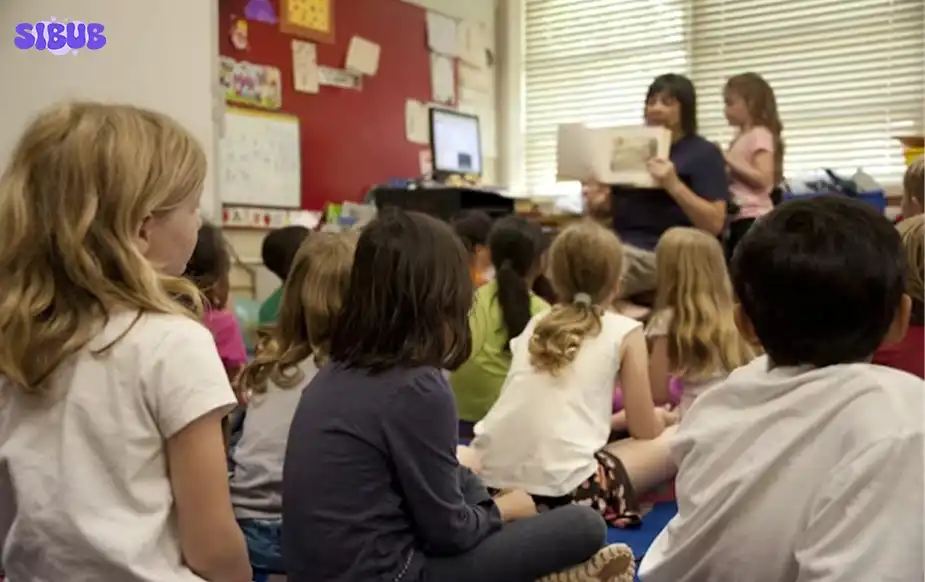There’s no magic switch that flips on confidence, empathy, or the ability to negotiate a group project without drama. But social skills activities, the ones rooted in actual research, can come pretty close. You can be a teacher, parent, or youth counselor; what you offer kids and teens in terms of practice can make a huge difference in how they relate to others.
In this post, we’re going straight into evidence-based social skills activities that aren’t just fluff. These work. They’ve been tested, observed, and refined. We’re talking persuasive games, empathy workouts, collaborative builds, and even a few unexpected tools like creative writing or role-playing games.
Breaking them down, next.
Why Social Skills Activities Matter (A Lot)
From preschoolers to high schoolers, children grow socially not through lectures but through socialisation activities that challenge them to listen, respond, compromise, and try again. And those aren’t just “nice to haves.” These are life-defining skills.
It can be a 5-year-old learning to wait their turn or a 16-year-old figuring out how to disagree without blowing up the group chat; social growth happens through doing.
These social skills activities can help:
- Reduce social anxiety
- Build emotional vocabulary
- Encourage cooperation
- Improve classroom behavior
- Boost peer relationships

Visit: When Do Babies Crawl? Understanding the 7 Stages of Crawling
1. Animal Habitats Game: Cooperation Builds Better Arguments
Let’s start with a study that proved something amazing: When kids cooperate, their reasoning improves. Researchers had 5- and 7-year-olds work in pairs to sort animals into their correct habitats. Half of them worked as a team; the other half competed.
Guess what happened? The cooperative group didn’t just do better, they explained why better. They gave more thought-out arguments and even considered opposing views.
Teaching Tip: Have kids work in pairs. Use cards with animals and habitats. Ask them to justify their choices out loud. Then ask: “What if your partner disagrees?”
This one’s a hit for social skills activities for kids.
Reference: Domberg et al., 2018
2. LEGO-Based Cooperative Construction
It’s not just blocks, it’s dialogue, teamwork, and negotiation. And in therapy settings, LEGO building has become a tool with real power. Kids, especially those with autism, improve in communication and collaboration when they construct something together.
One review even called LEGO®-based therapy a “promising treatment” for building social interaction skills in kids on the spectrum.
Teaching Tip: Have kids work together to design a mini-structure; one person builds, the other gives instructions, then swap.
Great for social skills games for preschoolers, too. Just simplify the task.
Reference: Narzisi et al., 2020
Discover: What a Child Drawing Can Reveal About Home Life & Emotions
3. Dungeons & Dragons: Roleplay with Rules
Surprised? You shouldn’t be. Tabletop role-playing games like Dungeons & Dragons have a built-in structure that makes communication safe. Players have to describe actions, make decisions together, and problem-solve inside a fictional world. The catch? Everything has to be said out loud.
In studies, adolescents on the autism spectrum who played these games showed more willingness to talk, collaborate, and take others’ perspectives.
Teaching Tip: Set up a simple campaign. Keep it short. Assign roles and encourage quiet kids to take charge of one moment.
Solid pick for social skills activities for teens and even social skills games for teens.
Reference: Atherton & Cross, 2021; Henning et al., 2024
4. Gratitude Reflections: Recognizing Acts of Kindness
One experiment asked kids to reflect weekly on a time when someone “went out of their way” to help them. Five short lessons later, these kids were better at identifying situations that deserved gratitude and more willing to express it.
Teaching Tip: Weekly journaling. Ask: “What’s one thing someone did for you that made your day better?”
Works wonders in social skills lesson plans.
Reference: Froh et al., 2014

5. Community Gardening: Dirt and Dialogue
Gardens grow more than plants. They foster cooperation. Multiple observational studies show that kids who engage in school or community gardening show gains in social skills, especially when the tasks involve group planning, plant care, and observation.
Teaching Tip: Assign small teams to a single garden bed. Add layers like “track snail movement” or “record soil changes.”
Ideal for both structured classrooms and after-school social activities for teens.
Explore: Pomodoro Study Method – Boost Focus in Kids with ADHD
6. Emotion Talks: Story-Based Group Chats
Here’s one of the most flexible social skill activities out there. Read a short story about a kid feeling sad, angry, or left out. Then, open it up: “Why did they feel that way?” “What would you do in their shoes?”
A study found that after eight weeks of doing this twice a week, kids showed higher empathy and better understanding of emotions, both their own and others’.
Teaching Tip: Pick stories with emotional ambiguity. Ask kids what different characters might be feeling, and why.
Pairs well with social skills games or storytelling circles.
Reference: Ornaghi et al., 2014
7. Team Sports + Good Coaching = Leadership Growth
Team sports alone won’t grow social skills. The coaching style matters a lot. Research found that kids whose coaches taught good sportsmanship and offered emotional support (not yelling and threats) scored higher in leadership and conflict resolution.
Teaching Tip: Build sportsmanship right into practice. Stop mid-game to highlight a kind move. Let kids brainstorm team goals.
Add this to any physical ed curriculum or weekend socialisation activities.
Reference: de Albuquerque et al., 2021
8. Charades: Old Game, Big Payoff
Classic charades aren’t just fun, they train kids to “mind-read.” When you mime walking a dog or climbing a ladder, your teammates need to get what you mean. This demands perspective-taking.
Brain scans even show increased activity in parts of the brain linked to empathy and theory of mind when watching charades.
Teaching Tip: Play in small teams. Make the rules strict: no sounds, only gestures. Bonus: Add a round where players guess each other’s emotions instead of actions.
Easy to adapt as social skills games for teens or social skills games for preschoolers.
Reference: Schippers et al., 2009
Learn More: Why the First 5 Years Matter – How Early Childhood Shapes Who They Become
9. Fast Friends: Icebreaker Questions with Depth
Simple, honest questions can change how teens connect. In a recent study, middle and high schoolers were given “fast friends” questions like:
- What’s your favorite memory?
- What’s something you’re afraid of?
- If you had a superpower, what would it be?
The result? Better bonding, more openness.
Teaching Tip: Start a session with one of these. Pair kids up. Three minutes each. No interruptions.
Especially helpful in new group settings or classroom transitions.
Reference: Swerbenski et al., 2024
10. Active Listening Trios
Listening sounds simple, but really hearing someone? That’s harder. One study tested a trio method: speaker, listener, observer. Listeners had to show they were tuned in by paraphrasing, asking questions, and holding eye contact. Observers gave feedback.
Kids in this setup were seen as more socially “attractive” and better understood.
Teaching Tip: Rotate roles every 5–7 minutes. Use real topics: “A time you felt misunderstood,” “Something you wish adults knew.”
An essential tool for social skills activities for teens.
Reference: Weger et al., 2014
11. Devil’s Advocate Debates
Critical thinking doesn’t grow without tension. In one famous study, kids who had to argue both sides of a topic reduced their “myside bias.” They learned to spot flaws, even in their own arguments.
Teaching Tip: Pick everyday topics: Should phones be allowed in class? Should homework be optional? Assign sides randomly.
Integrate into social skills lesson plans or writing classes.
Reference: Stanovich et al., 2013

12. Write Someone Else’s Story
A woman smoking during pregnancy. Easy to judge, right? But in a study, students were asked to write about their life, assuming she was as smart as they were and facing a challenge.
The results? More empathy. Better insight.
Teaching Tip: Present a tricky situation: one roommate plays music loudly, the other needs to study. Ask each student to write from the opposite perspective.
Writing meets social skill activities with emotional depth.
Reference: Shaffer et al., 2019
Check this out: 6 Signs Your Child Needs Help – A Guide to Therapy Kids
13. Party Games with Perspective
Let’s talk fun. The “Awkward Moment Card Game” and “Buffalo” don’t preach empathy; they sneak it in. Kids face weird, real-world dilemmas or mash-ups like “tattooed grandparent.” The outcome? Less bias, more flexible thinking.
Teaching Tip: Use these once a week. Laugh. Then pause to ask: “Why did you pick that card? What made that answer click?”
Awesome addition to social activities for teens.
Reference: Kaufman & Flanagan, 2015
Final Thoughts
Building social awareness in kids and teens isn’t a single lesson; it’s a thousand micro-moments of practice, error, laughter, and reflection. The right social skills activities give them the tools to decode emotions, find common ground, speak up, and step back when needed.
It’s not about turning every child into a social butterfly. It’s about giving them the confidence to show up and be understood.
And when do they practice these skills often? That’s when the real changes stick.
